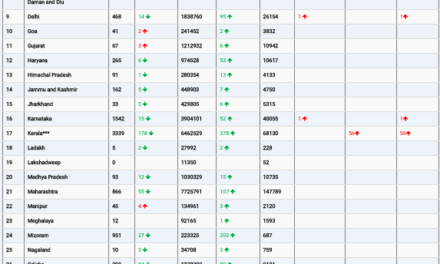A recent study from Finland has found that fear of childbirth significantly reduces the duration of breastfeeding, regardless of the mode of delivery. The findings, based on data from the Kuopio Birth Cohort (KuBiCo) study, highlight the importance of targeted breastfeeding support for mothers who experience fear during childbirth.
Breastfeeding Duration and Childbirth Factors
The study analyzed data from 2,521 women who gave birth at Kuopio University Hospital between 2013 and 2020. Expectant mothers completed questionnaires during pregnancy and provided details on their breastfeeding habits when their child reached one year of age.
In Finland, breastfeeding is recommended for at least six months, with exclusive breastfeeding for 4–6 months. According to the study, 98% of mothers initiated breastfeeding in the first week after birth, and 75% continued to breastfeed for six months or longer. Mothers who experienced uncomplicated vaginal deliveries were most likely to meet these recommendations.
Fear of Childbirth and Its Impact on Breastfeeding
A key finding from the study was the association between a fear of childbirth and shorter breastfeeding durations. Mothers who experienced fear during childbirth were three times more likely to stop breastfeeding earlier than recommended, either switching to formula or weaning altogether.
“This is the first time researchers have observed a significant link between fear of childbirth and breastfeeding duration, independent of the delivery method,” said Maija Vasanen, Lic.Med., the study’s first author. The fear of childbirth was associated with shorter breastfeeding times regardless of whether the mother had a vaginal delivery, a caesarean section, or a vacuum-assisted birth.
Other Risk Factors for Shorter Breastfeeding Duration
The study identified several additional factors that contributed to shorter breastfeeding durations, including twin pregnancies, maternal obesity, high blood pressure, smoking, young maternal age, first-time childbirth, single parenthood, and lower levels of education. Notably, only 40% of mothers with twins breastfed for the recommended six months.
Positive Trends in Breastfeeding Rates
Despite the challenges identified, the researchers also reported encouraging trends in breastfeeding rates. Between 2013 and 2020, the proportion of mothers breastfeeding for more than six months rose from 71% to 85%. Meanwhile, the number of mothers breastfeeding for shorter durations fell from 27% to 15%.
“The increase in breastfeeding duration is likely due to greater awareness of breastfeeding’s benefits and improved breastfeeding guidance and support,” said Professor Leea Keski-Nisula, the study’s lead author.
Supporting Mothers with Childbirth Fears
The researchers emphasize the need for targeted breastfeeding support for mothers with childbirth fears, as well as those with other risk factors like twin pregnancies or smoking. Healthcare professionals should ensure that breastfeeding guidance includes these groups to improve breastfeeding success rates.
The Kuopio Birth Cohort study is a collaborative research project between Kuopio University Hospital, the University of Eastern Finland, and the Finnish Institute for Health and Welfare. The findings highlight the importance of tailored support in overcoming barriers to breastfeeding, ultimately benefiting both mother and child.












